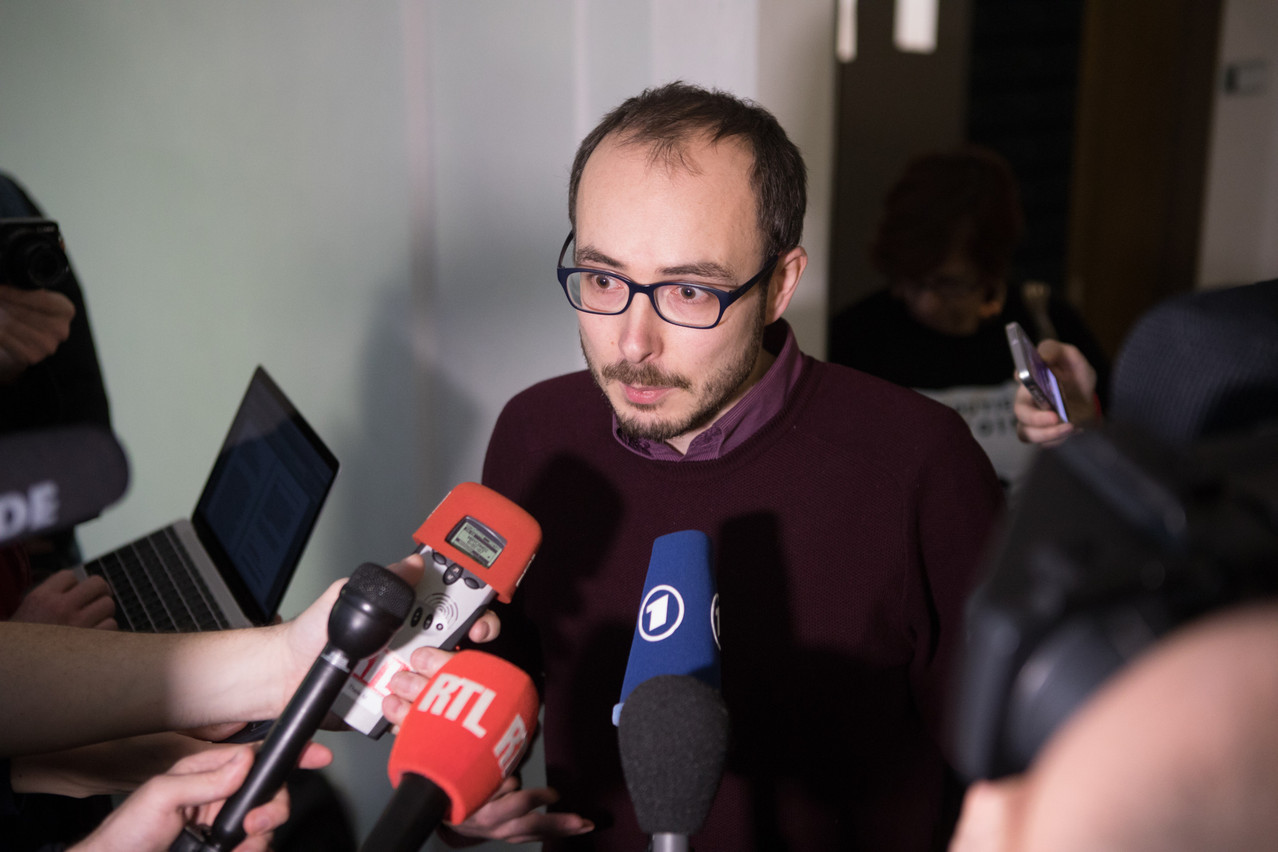Luxembourg on 19 January presented its draft law to transpose the EU’s 2019 whistleblower directive into national law. The European Commission later that month warned the grand duchy and 23 other member states over failing to meet a 17 December 2021 deadline. Just last week the EU’s executive urged Portugal and Sweden to transpose the new rules without delay.
While the implementation is now well underway in Luxembourg, it could take months for parliament to pass the laws and even then, the proof of the pudding will be in the eating, as the current document leaves much room for interpretation, says Dimitrios Kafteranis, an assistant professor in law.
“It’s mostly a copy-paste of the directive,” Kafteranis told Delano in an interview. The scholar, who now works at Coventry university, completed his PhD at the University of Luxembourg where he specialised in whistleblower protection.
The fact that the directive--and its application in member states--even exists is progress though. “It’s positive. We’re talking about whistleblowers, they’re in the news. There’s more information, there are more organisations. It’s going to get bigger and bigger.”
Still, the directive fails to answer all problems. It foresees a three-tiered reporting process. Only if internal and external options--with specific watchdogs and authorities--are exhausted, can whistleblowers make their information public, for example through the internet or with the help of the media. They can skip the first two stages only if there is imminent danger for the public interest.
“What is public interest? What is imminent danger? It’s very subjective,” said Kafteranis, adding that it would also be difficult for a whistleblower to determine whether these conditions have been met before going public with their findings.
Luxembourg supported making public channels available from the start, the ministry told Delano in . However, other member countries, such as France--which already had internal reporting regulations in place--opposed the move.
“Apparently the European Commission prohibits member states to allow someone to report directly to the public,” Kafteranis said. “It goes against European law. You cannot tell member states to not do something that’s more favourable.”
Deltour charges
There are other areas where the directive--and Luxembourg’s transposition--are unclear. For example, whistleblowers cannot obtain the information they want to leak through a so-called “self-standing criminal offence”. But what constitutes such an offence isn’t defined--is it enough to copy suspicious documents from a colleague or remove files from the office?
“It doesn’t provide security to the whistleblower,” Kafteranis said. “Employers will find a way to punish their employees by saying they committed theft or a break of confidentiality or secrecy.”
Luxembourg’s most famous whistleblower, Antoine Deltour, was charged with theft, illegal accessing of a database and a string of criminal offences in 2014. Two years later, a court handed him a 12-month suspended sentence and €1,500 fine for theft and violating secrecy laws. The court of appeals cleared Deltour in May 2018 recognising his whistleblower status.
Justice minister Sam Tanson (Déi Gréng) in January refused to comment whether the new laws would have benefitted Deltour, adding that more clarity on some of the dispositions would emerge from jurisprudence, precedents and how the law is applied in practice.
Deltour would have been far from automatically exonerated under the EU directive and its Luxembourg transposition, Kafteranis said. “The law helps. There is a law now that we didn’t have before,” he said. “But we have to wait to see it in practice.”
A that will be set up as part of the law’s implementation should provide advice to people considering reporting wrongdoing internally, externally or publicly. But what the office’s role would be in case of a lawsuit resulting from a case they consulted on isn’t entirely clear either. “I think they won’t take responsibility for that,” Kafteranis said.
The office will also help companies implement new rules, which require businesses of more than 50 staff to set up internal reporting procedures. “It’s a very good idea,” the researcher said. “Not many countries have this.”
Mix-up over consulted groups
What shape the office will take in the end will also depend on the progress of the law as it makes its way through parliament. So far, a medical association--the Collège medical--and a chartered accountant group--the Ordre des experts-comptables--have submitted their opinions on the law. Key documents from the state council and organisations such as the Chamber of Commerce, industry group Fedil or labour unions are still missing.
Delano contacted StopCorrupt, which had not yet finalised its analysis of the Luxembourg law at the time of publication. The organisation had said the grand duchy should aim for a broad transposition of the directive. In a , it had said particular attention should be paid to creating legal certainty and offering protection on leaking trade secrets.
StopCorrupt is listed in the documents filed with parliament by the ministry but said they weren’t consulted about the directive’s implementation. The ministry said official statements by the group had been received and filed in documents examined for the transposition of the law.
The documents also state that the ministry consulted the Whistleblowing International Network (WIN), who told Delano they had not been contacted. Kafteranis during his time at the University of Luxembourg--also listed as a consulted body--worked with WIN, reporting back to the organisation about the country’s progress in implementing the EU directive.
Kafteranis was in contact with the ministry as it developed its draft law. A ministry spokesperson said he assumed that the researcher was working with WIN, calling the mix-up a “misunderstanding”. Kafteranis has since requested that the documents filed with parliament be amended to make clear that he met with the ministry as a PhD candidate and WIN rapporteur, but the ministry spokesperson could not confirm whether it would be possible to make these edits.
